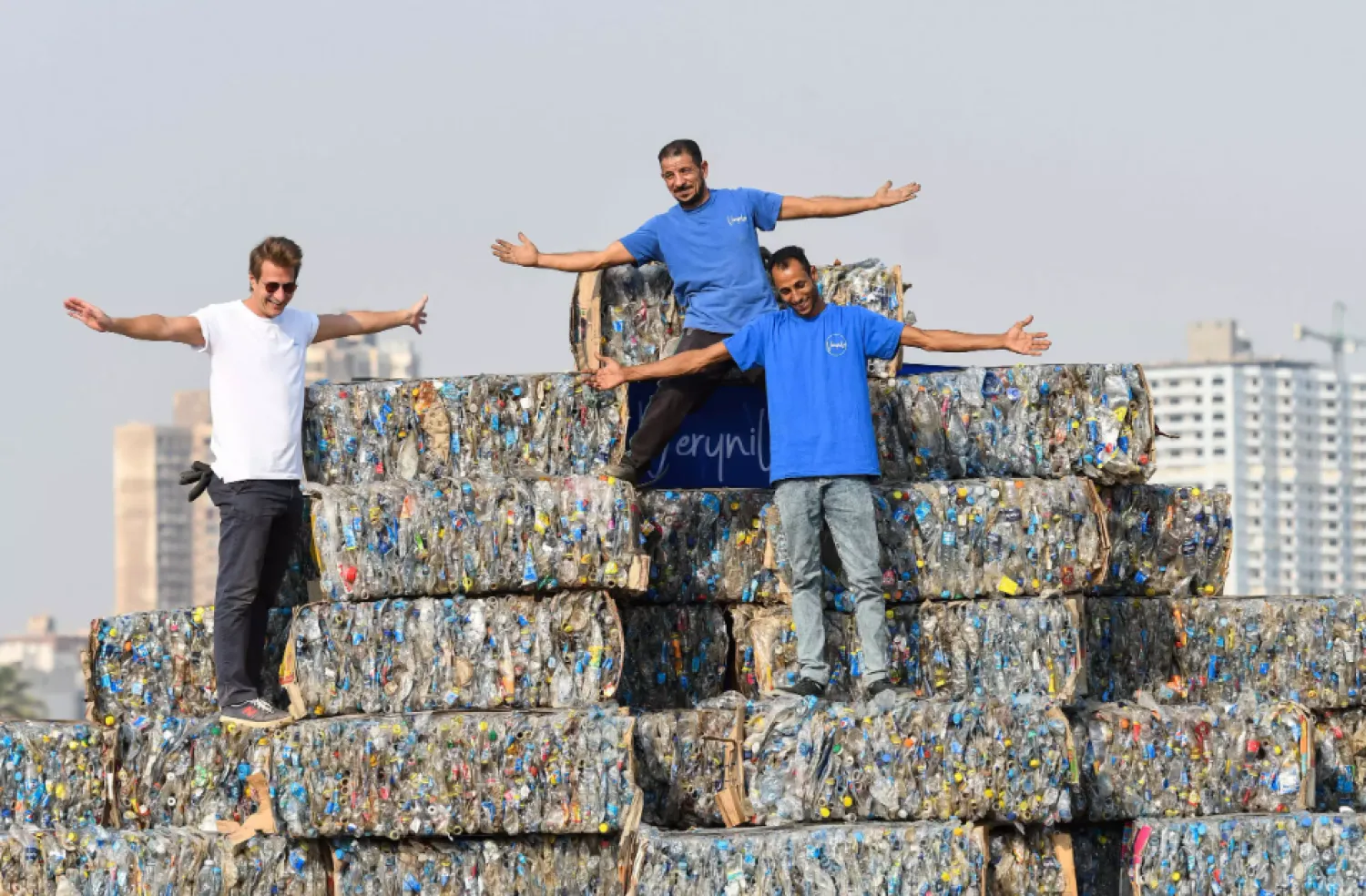Entrepreneurial young Egyptians are helping combat their country's huge plastic waste problem by recycling junk-food wrappers, water bottles and similar garbage that usually ends up in landfills or the Nile.
At a factory on the outskirts of Cairo, run by their startup TileGreen, noisy machines gobble up huge amounts of plastic scraps of all colours, shred them and turn them into a thick liquid.
The sludge -- made from all kinds of plastic, even single-use shopping bags -- is then moulded into dark, compact bricks that are used as outdoor pavers for walkways and garages.
"They're twice as strong as concrete," boasts co-founder Khaled Raafat, 24, slamming one onto the floor for emphasis.
Each tile takes about "125 plastic bags out of the environment", says his business partner Amr Shalan, 26, raising his voice above the din of the machines.
Raafat said the company uses even low-grade plastics and products "made of many different layers of plastic and aluminium that are nearly impossible to separate and recycle sustainably".
Microplastics in the water concentrate in marine life, threatening the health of people who consume seafood and fish caught in Africa's mighty waterway -- mirroring what has become a worldwide environmental scourge.
TileGreen, launched in 2021, aims to "recycle three billion to five billion plastic bags by 2025", said Shalan, AFP reported.
The start-up last year started selling its outdoor tiles, of which it has produced some 40,000 so far, and plans to expand into other products usually made from cement.
Egypt, a country of 104 million, has pledged to more than halve its annual consumption of single-use plastics by 2030 and to build multiple new waste management plants.
Low-quality plastics such as food wrappers are incinerated to power a cement factory which, Fawzy said, keeps "the environment clean with air filters and a sensitive monitoring system."
"We can't clean up the environment in one spot just to pollute elsewhere," he said.
The Egyptian programs are part of a battle against a global scourge.
Less than 10 percent of the world's plastic is recycled, according to the Organization for Economic Cooperation and Development.
The OECD said last year that annual production of fossil-fuel-based plastics is set to top 1.2 billion tonnes by 2060, with waste exceeding one billion tonnes.
In Egypt, activists have hailed what they see as a youth-led push for sustainability that has created demand for environmentally-minded solutions and products.
But while the change is welcome, they say it remains insufficient.
"What these initiatives have done is find a way to create a value chain, and there's clearly demand," said Mohamed Kamal, co-director of environmental group Greenish.









